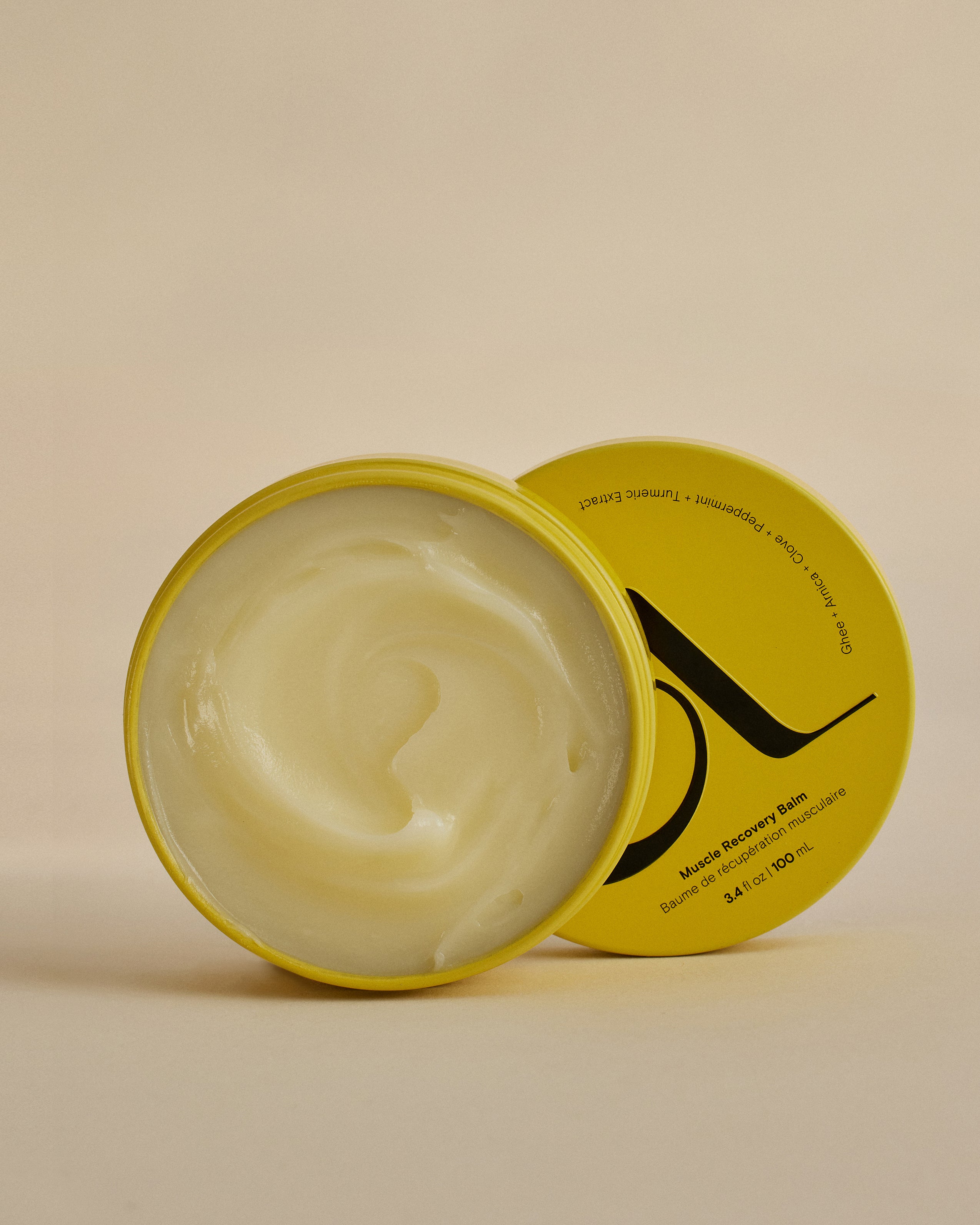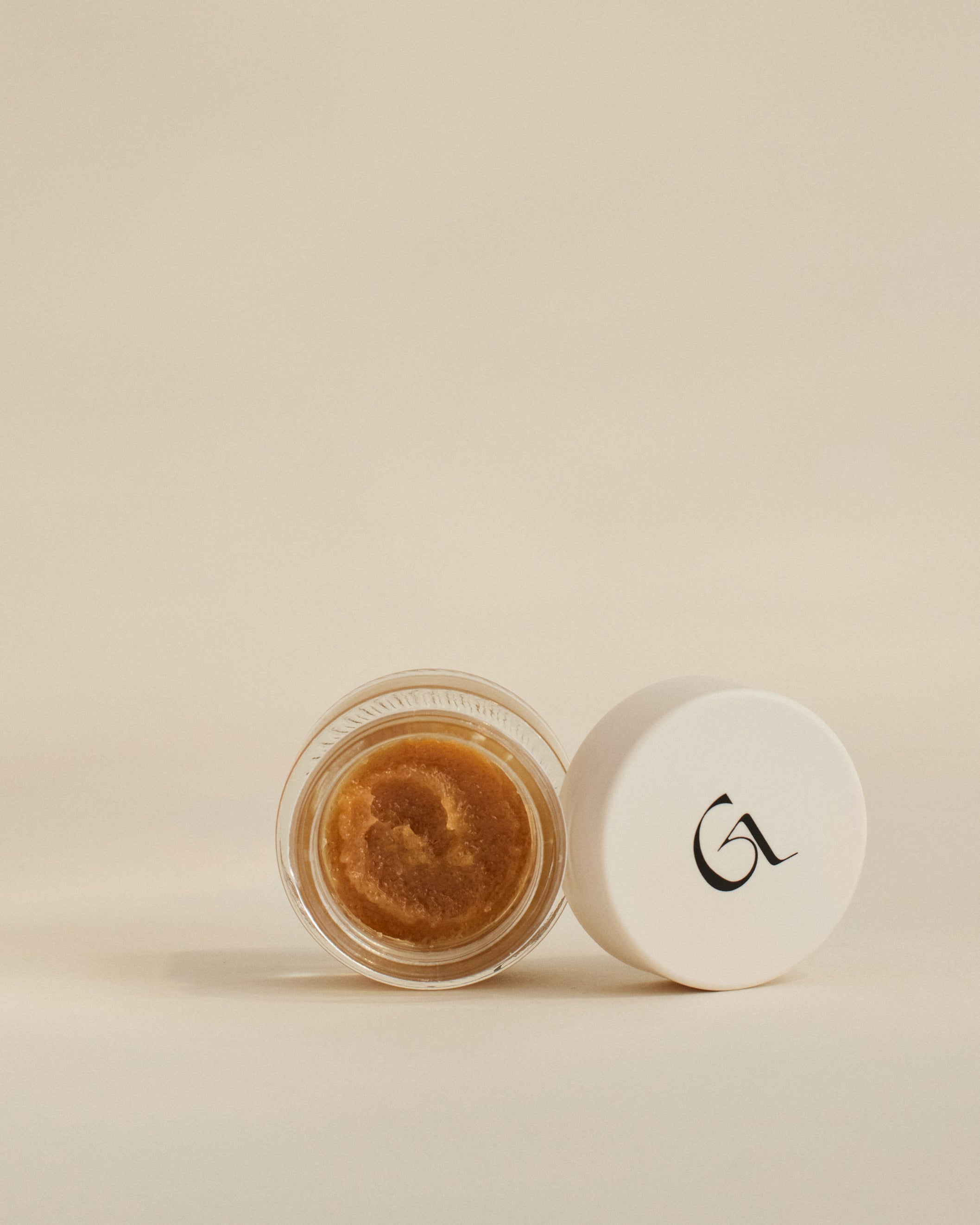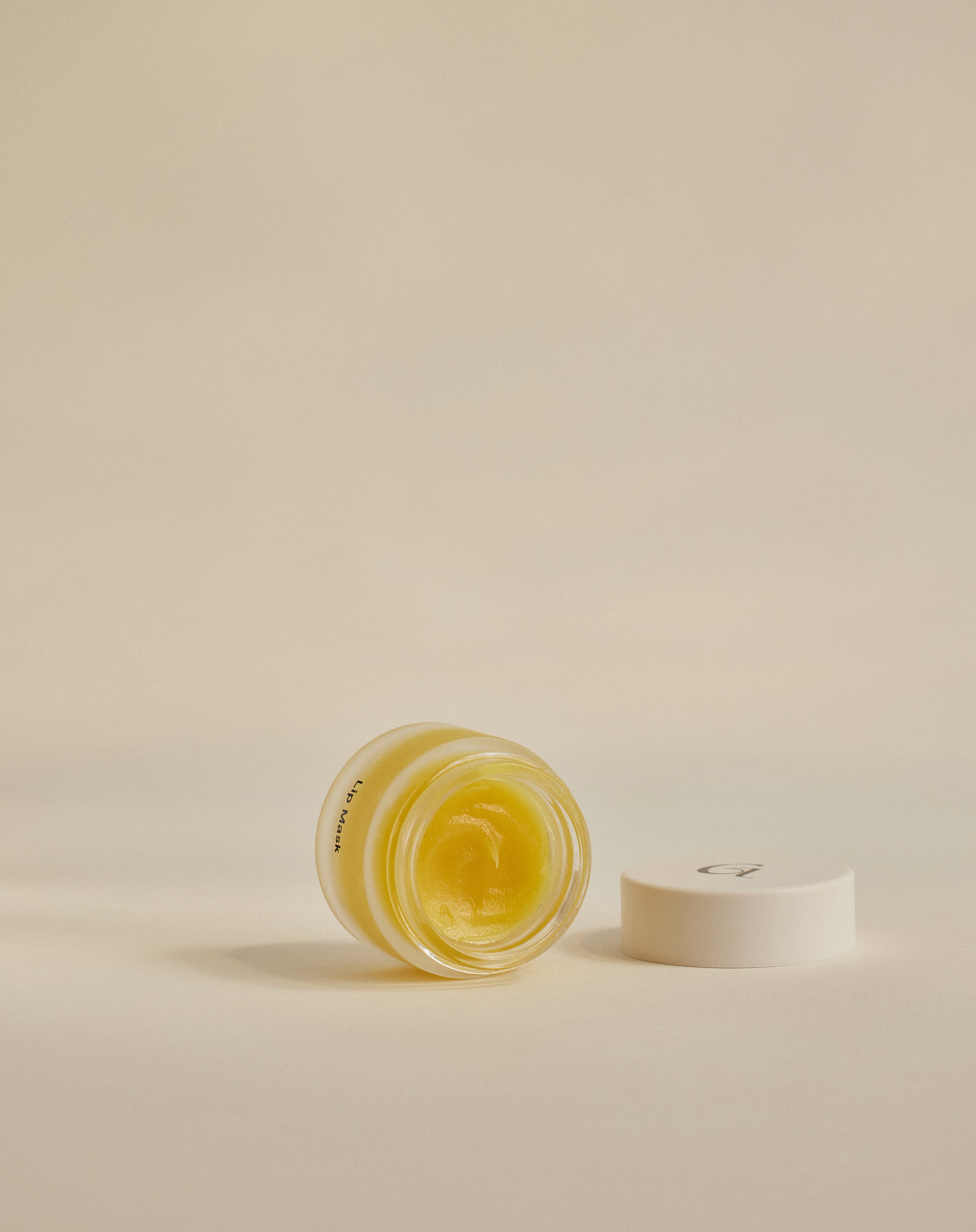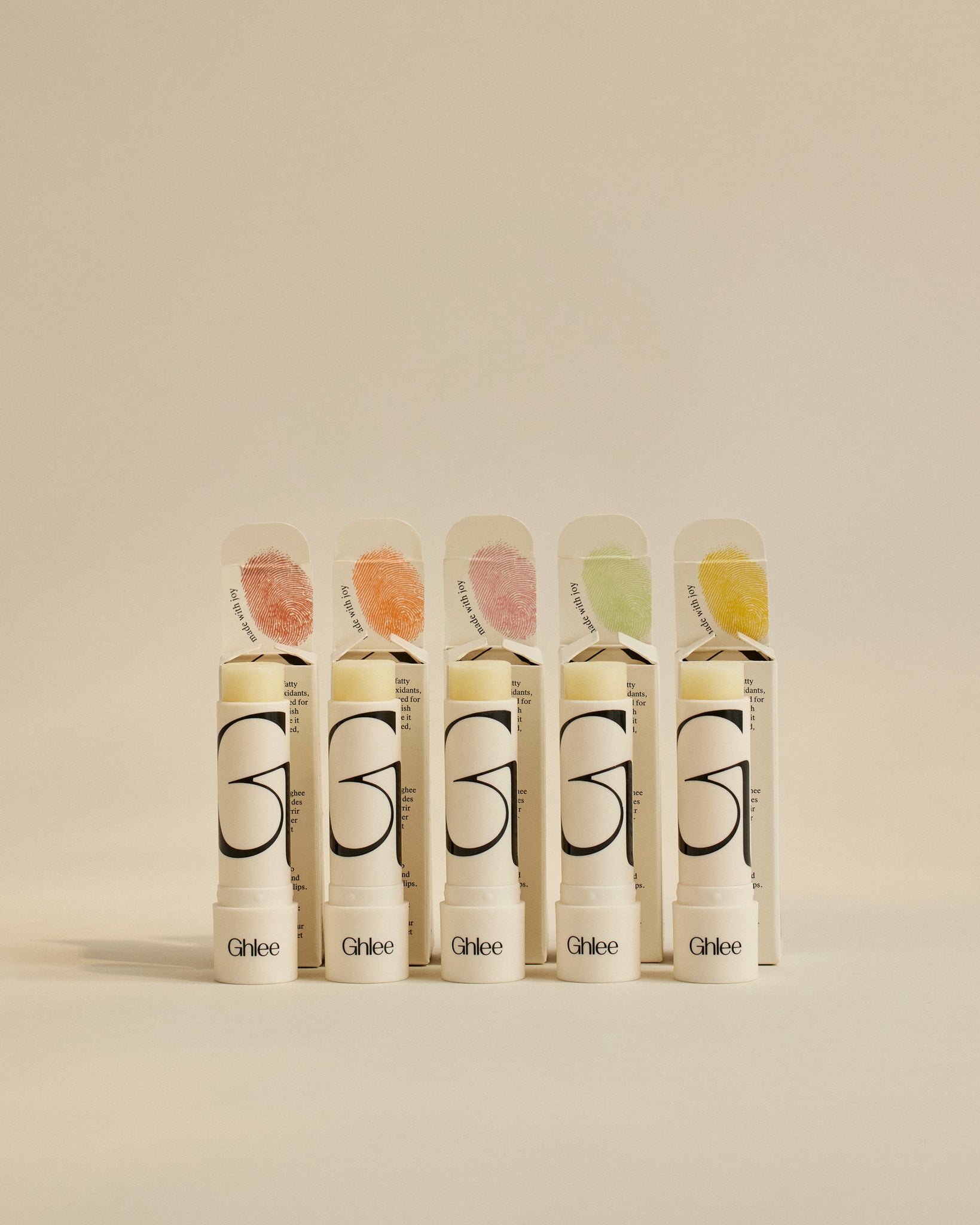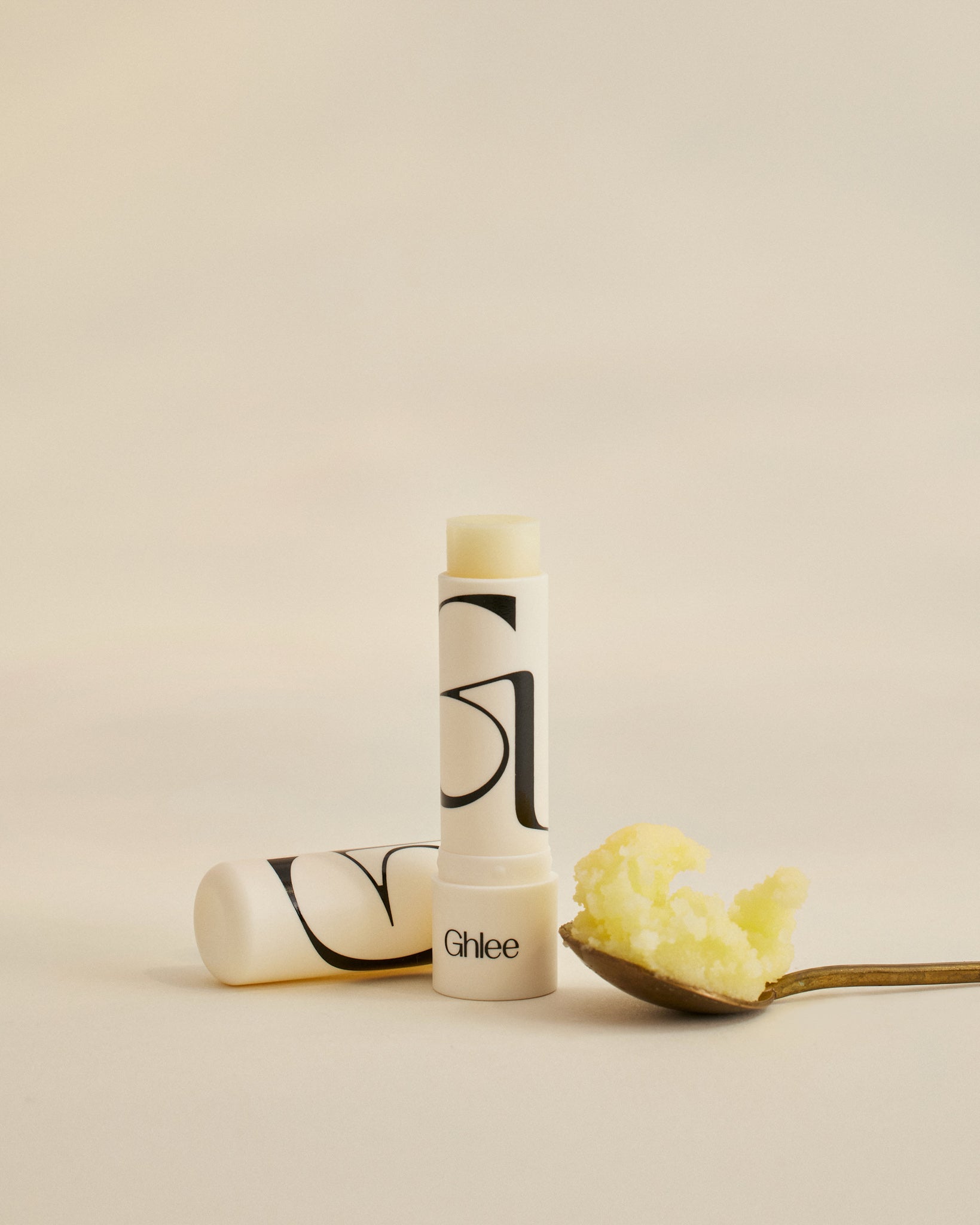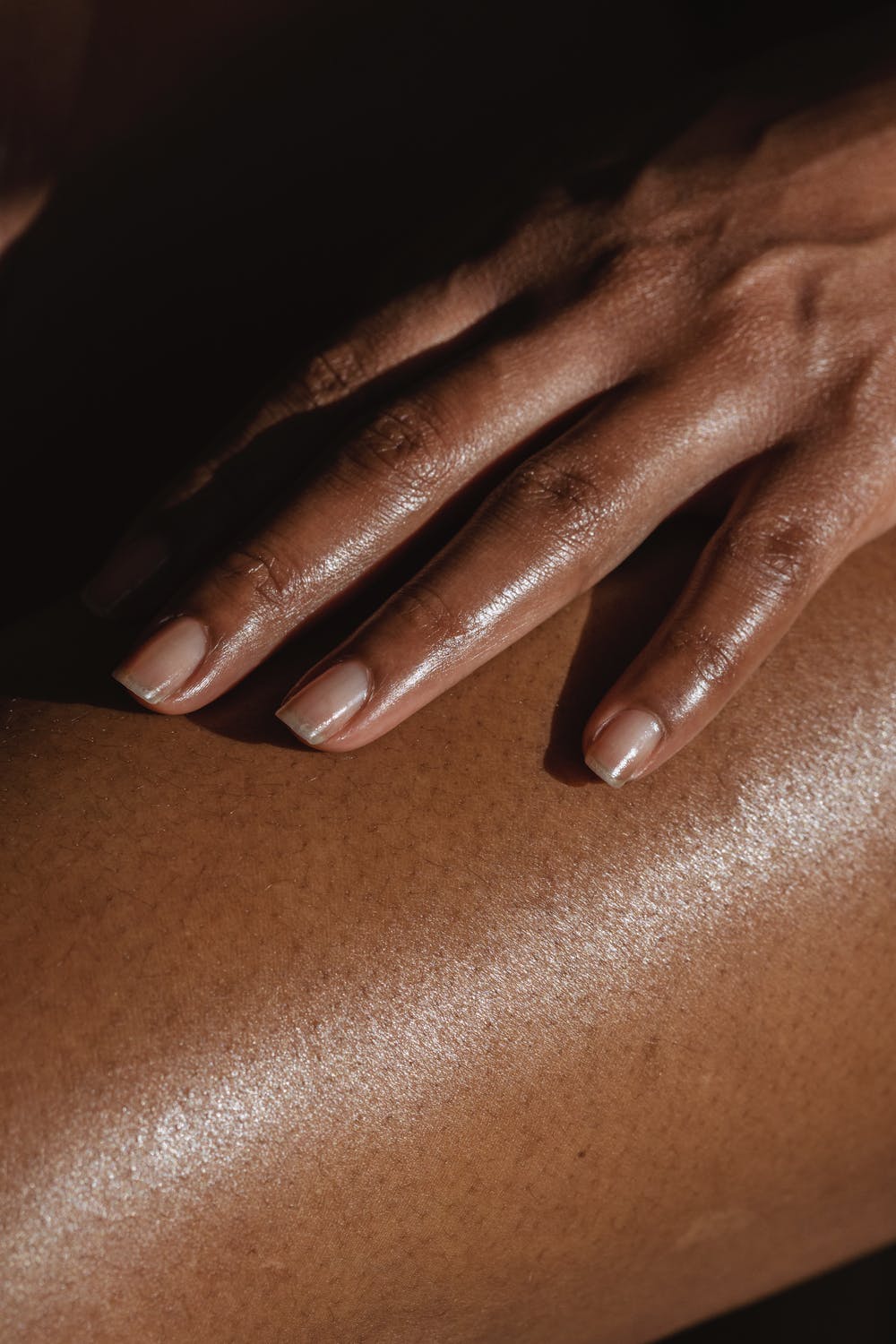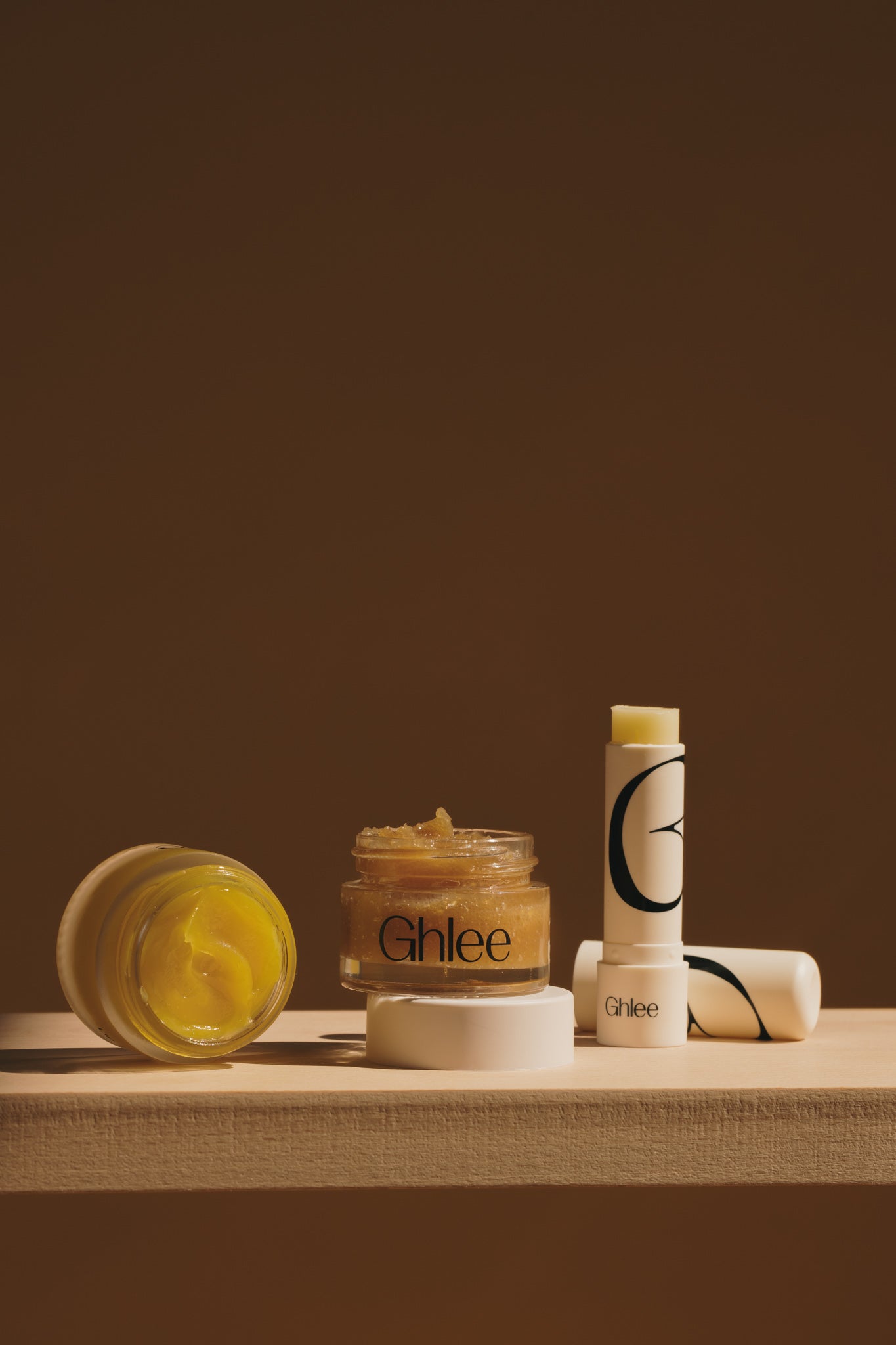We hear it all the time: Is ghee good for you? And what are the health benefits of ghee for skin and the health benefits of ghee for hair? Let's talk about it.
Your skin is your largest organ and one of the hardest working ones, so why not treat it like it is? Moving away from seeing our skin as something to fix and upkeep and approaching our skin as a part of our bodies that we can bring to healthier and happier places is key to anyone on their skin and hair journey. And the secret to great skin and hair? A healthy skin barrier. It's essential to note here that our scalp is skin; we believe this is where haircare should begin.
Enter ghee, a nutrient-dense ingredient packed with Vitamins A, C, E, K, omega fatty acids and more. What does that mean for your skin health? We broke it down for you.

Speed up your skin's healing process with vitamins A and K
This duo of vitamins works together to act like nature's retinol. Vitamin A works to speed up your skin's healing process, preventing breakouts and naturally supporting your skin's "immune system." What does this mean? Ghee will help hydrate your skin and promote overall skin health. On the other hand, Vitamin K will help protect and maintain your skin's natural collagen levels, leaving you with skin that looks and feels plumper, smoother, softer and more youthful.
Decreases inflammation and skin damage with vitamins C and E
An incredible antioxidant and anti-inflammatory agent, Vitamin C will improve your skin's tone and texture. Ghee brightens your complexion and can even protect it against sun damage and free radicals. Vitamin E is as powerful of a healing agent as it is anti-inflammatory and also helps protect your skin cells from damage. As a fat-soluble vitamin also naturally found in your skin's sebum, it will create a natural barrier to help retain moisture.

Heal and soothe your skin with omega fatty acids
In addition to combatting red, dry or itchy skin, the omega fatty acids present in ghee can help heal a damaged skin barrier and soothe the effects of atopic dermatitis, eczema and psoriasis. Taking it a step further, the fatty acids present in ghee can even improve the hydration balance of our skin. An omega-5 fatty acid, linoleic acid, is also present in ghee. Linoleic acid has significant anti-inflammatory and antioxidant properties and can improve skin cell and epidermal regeneration.
Learn more about the history of ghee and explore our range of ghee-based skincare products.
